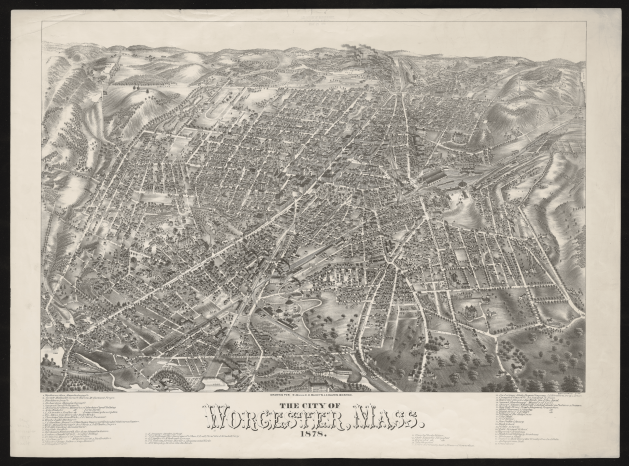
The John Adams Courthouse, home to the Supreme Judicial Court. Photo (cc) 2008 by Swampyank.
The grotesque incivility of the age has caught up with local government. The state’s Supreme Judicial Court ruled last week that a bylaw in the town of Southborough that requires members of the public to act with “civility” when addressing officials was a violation of the Massachusetts Constitution as well as the First Amendment.
It’s hard to disagree. In fact, three years ago I gave a New England Muzzle Award to the president of the town council in Exeter, Rhode Island, for sponsoring a rule requiring “decorum” from people who appear at public meetings. As I wrote for GBH News, “It should be possible to exercise some control over a public meeting without an ordinance that tramples on the First Amendment.”
I haven’t changed my mind, and I think the SJC did the right thing in ruling against Southborough officials. But wow. The unanimous decision, Barron v. Kolenda, was written by Justice Scott Kafker. Adam Gaffin, who covered the case for Universal Hub, reports:
At issue was a 2018 meeting of the town Select Board when the chairman cut short the regular public-comment period after a local gadfly, upset about both a potential tax increase and a state determination that the board had earlier and repeatedly violated the state Open Meeting Law, called the chairman “a Hitler” twice (to which he replied she was “disgusting”). He cited the town’s “civility” bylaw, which requires statements to be “respectful and courteous, free of rude, personal, or slanderous remarks” and which bars shouting and “inappropriate language.”
The SJC ruled that the select board had engaged in “viewpoint discrimination” on the grounds that favorable comments about the board would not have similarly been shot down. The court said that the wording of the bylaw goes well beyond the state constitution, which says only that the right of free speech must be exercised in “an orderly and peaceful manner.”
I could go on, but Adam’s got the story well covered, including lengthy excerpts from the SJC’s ruling. Jennifer Smith has a bit more at CommonWealth Magazine about what actually went down at the select board meeting. According to Smith, the resident in question, Louise Barron, accused town officials of “spending like drunken sailors” and held a sign; on one side was written “Stop Spending,” and the other proclaimed “Stop Breaking Open Meeting Law.” Smith continues:
Board member Daniel L. Kolenda interrupted, saying she [Barron] was starting to “slander” the town officials. He announced the public comment period would close and the board would go into recess, at which point an outraged Barron said, “Look, you need to stop being a Hitler.”
Kolenda ordered the hearing ended and cameras turned off, the SJC said. He began shouting at Barron that she was “disgusting” and he would have her “escorted out” of the meeting if she did not leave. She left and later brought suit, appealing to the high court after a lower court dismissed her claims.
The select board may control public participation to some extent, the SJC notes, by adopting “time, place, and manner restrictions” concerning the length of the public comment session, time limits for each speaker, and rules against disrupting other speakers. Because such TPM restrictions, as they are called, are viewpoint-neutral, they do not raise any constitutional issues. The Southborough ordinance, though, went well beyond that. Justice Kafker’s decision ends with this:
At a public comment session in a meeting of the board, a resident of the town thus clearly has the right to accurately complain about violations of law committed by town officials and object to other town actions, including its spending practices, and to express her views vehemently, critically, and personally to the government officials involved…. When a government official responds to a resident’s exercise of those rights by accusing her of slandering the board, screaming at her, and threatening her physical removal, it should be clear to him that his conduct is unlawful.
As I said, the SJC clearly got it right. Carol Rose, executive director of the ACLU of Massachusetts, said in a statement: “This is a major victory for free speech and participatory democracy.” But when I was regularly covering city council, select board and school committee meetings back in the 1980s, it would have been unthinkable for a member of the public to refer to a public official as “Hitler” — and, yes, there were obnoxious, uninformed members of the public back then, too. But there was also a certain level of propriety that everyone adhered to. It would have been inconceivable for anyone to invoke Hitler.
We are in a different world, now. The SJC ruling harks back to an earlier age, invoking both John Adams, for whom its gathering place is named, and Samuel Adams. Barron v. Kolenda is unlikely to be the last word on how members of the public may or may not behave in governmental forums, either in Massachusetts or elsewhere.











